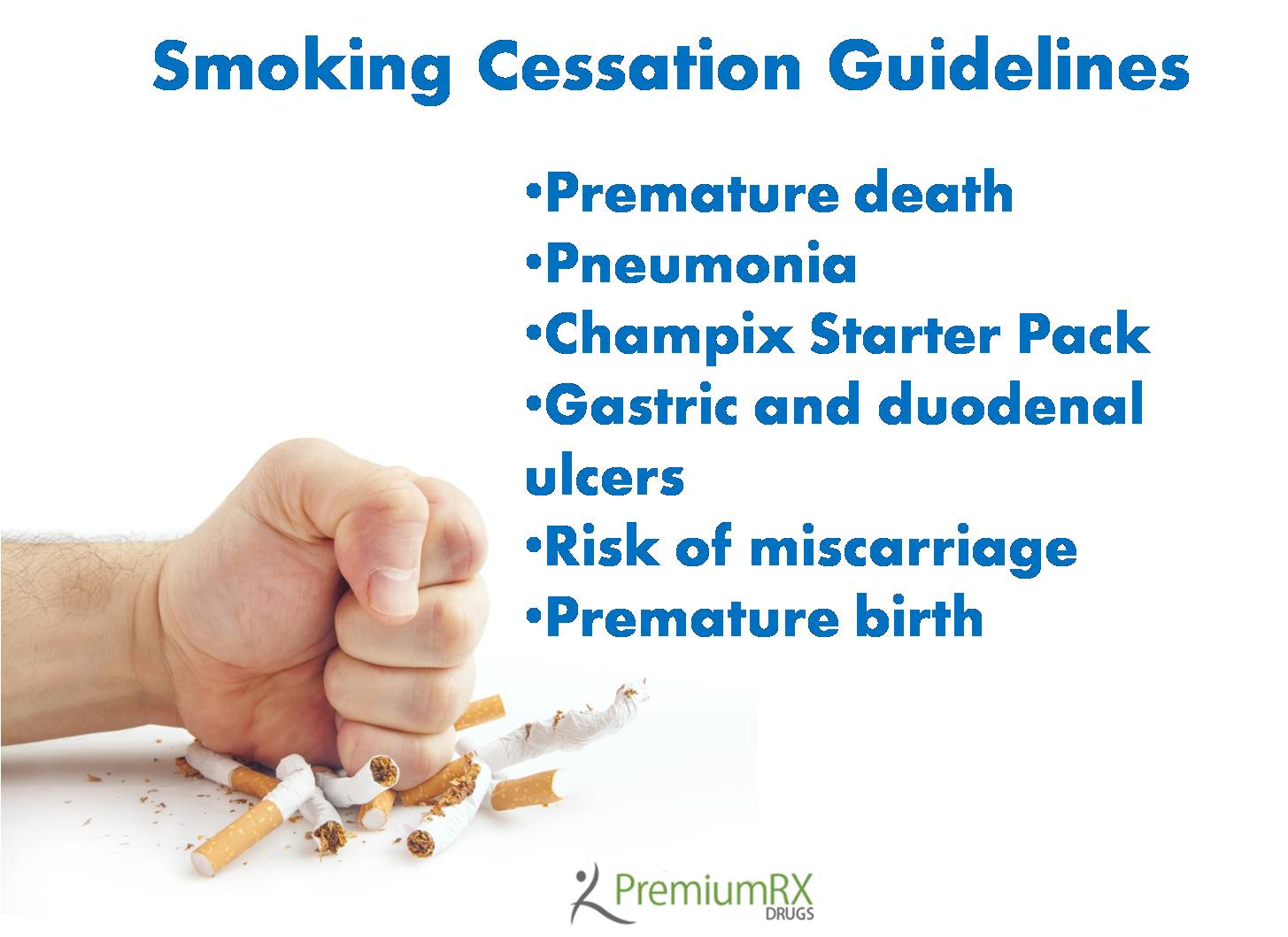Smoking is the leading cause of death in developing countries. About half of all smokers die of a smoking-related illness. Many smokers are willing to quit, but unfortunately very few can do so.
Stopping smoking is the single most important step that smokers can take to enhance their quality of lives. To quit tobacco use and to stay fit, you need to know what you are up against, what the treatment options available to you are, and where you need to go for help. You will find all smoking cessation like Smoking Cessation Guidelines- Champix Starter Pack-related information here. However, these guidelines are not intended to serve as a standard of your health care specialist’s advice. Standards of medical care are determined by all clinical data and medical history of an individual (a smoker who wants to quit) and are subject to change depending on the clinical response.
Smoking is responsible for causing risk factors for various health issues including:
- Premature death- Tobacco use or smoking is one of the major causes of premature death all over the world. A majority of people die at an early age due to lung cancer, coronary heart disease (CHD), and chronic obstructive pulmonary disease caused by smoking.
- Pneumonia- Many young smokers are admitted to the health care centre for pneumonia. Cigarette smoking is the strongest risk factor for developing pneumonia in healthy young people.
- Regular smoking can cause cancer of esophagus, pancreas, bladder, upper respiratory tract, stomach and myeloid leukemia.
- Gastric and duodenal ulcers
- An aortic aneurysm, cerebrovascular disease, and heart failure caused by CHD
- Impotence, premature ageing, osteoporosis, infertility
- Risk of miscarriage, premature birth, stillbirth, and low birth weight. Smoking during pregnancy may also affect the child’s growth and development.
- Smoking cessation interventions are the best way to reduce illness. Stopping smoking provides both immediate and long-term benefits irrespective of your age. If you are a smoker and willing to quit staying fit in the future, then you must follow these guidelines. These guidelines, especially focus especially on reducing the prevalence of smoking among people of all communities.
- A smoker is always advised to quit smoking and take the help of a smoking cessation clinic for management and support. According to the National Institute for Health and Care Excellence (NICE), the following guidelines are recommended:
- Nicotine replacement therapy or Champix Starter Pack (Varenicline) is appropriate for people who are willing to quit.
- Pharmacological therapy should always be prescribed as part of an abstinent-contingent treatment, in which an individual who smokes a lot makes a strong determination for quitting smoking on a target stop date.
- The pharmacological therapy such as Champix Starter Pack and NRT are sufficient to last only until fourteen days after the target stop date. After fourteen days of NRT and 21 to 28 days for Champix, to allow for the different techniques of administration and mode of action.
- Patients are advised to follow the treatment only if your quit attempt is continuing. Otherwise, there is no use of subsequent prescriptions.
- If you find yourself unsuccessful in quitting with NRT or varenicline, your health care provider will not offer a repeat prescription for six months unless special circumstances have hampered an individual’s initial attempt at quitting smoking.
- A combination of nicotine patches and other NRT therapy such as nicotine gum, etc. may recommend to people who are found to have a high level of dependence on nicotine or did not get benefited with single forms of NRT in the past.
- Pharmacological treatments like NRT or varenicline should not be offered in any combination.
- Patients are advised not to take one medication over another. With the help of your health care provider, you must choose the one that seems most likely to succeed.
Marie
Latest posts by Marie (see all)
- Revize Micro Gel 0.025% | Uses, Price, Side effects - April 9, 2025
- What is Evalon Cream: How to Apply, Benefit, who Can Use - April 4, 2025
- Understanding Avanair 200 mg: A Comprehensive Guide - April 4, 2025




